
April 17's Roxxon Presents: Thor #1 is a tongue-in-cheek satire that offers up an exacting look at what the absolute worst case scenario of corporate comics can be, with the evil Roxxon Corporation, led by the vicious minotaur Dario Agger and powered by the Asgardian villain the Enchantress, having bought and warped all of Thor's adventures into the corporate synergy comic to end all corporate synergy comics.
In other words, it's exactly what was promised when the frankly hilarious initial announcement of Thor's reinvention as Chad Hammer went out a few months ago. But does the satire have teeth when the call is coming from inside the house?
Spoilers ahead for Roxxon Presents: Thor #1
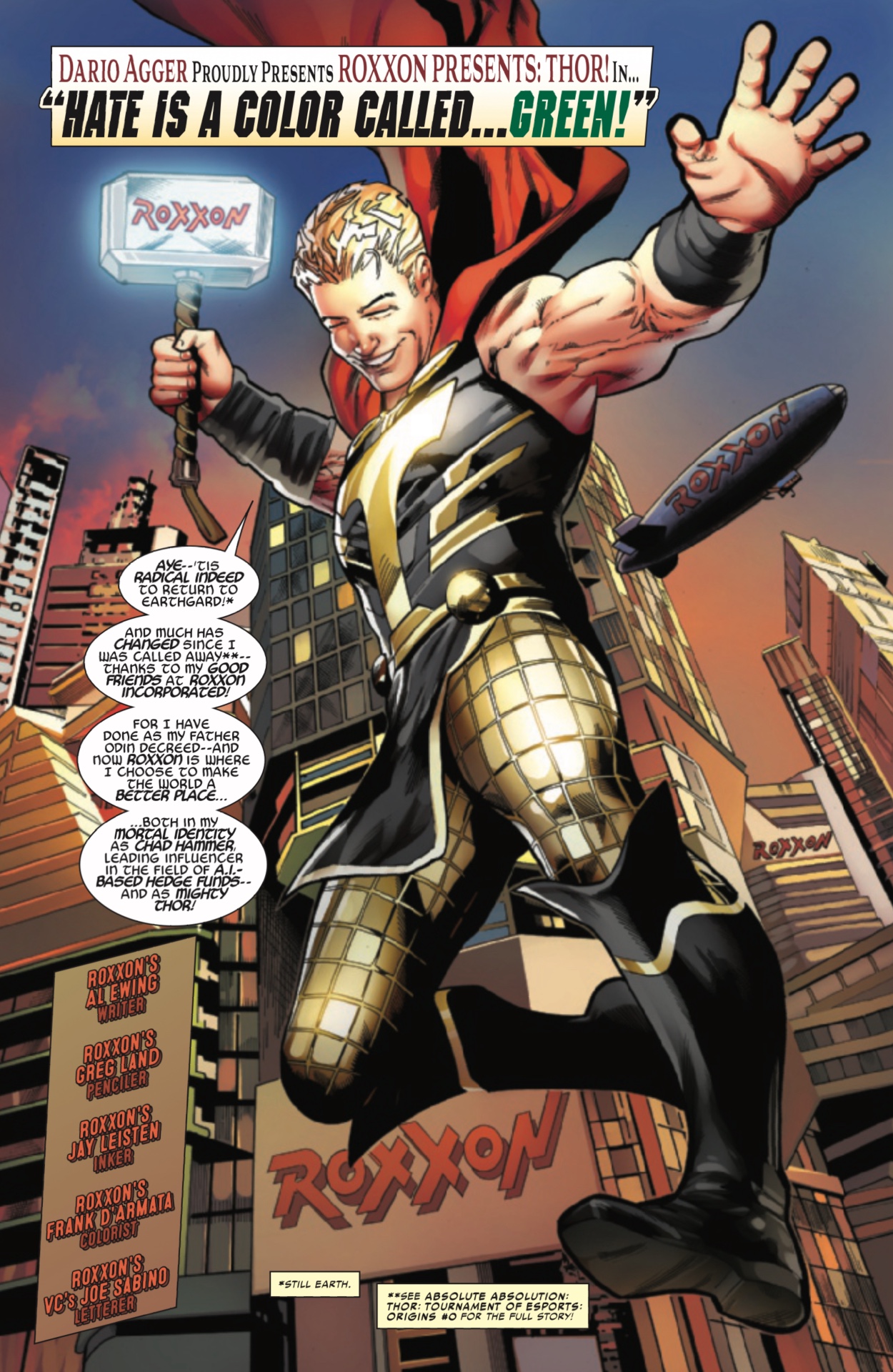
First off, this comic is funny as hell. Writer Al Ewing, artist Greg Land, inker Jay Leisten, colorist Frank D'Armata, and letterer Joe Sabino, who are all credited as "Roxxon's Al Ewing, Roxxon's Greg Land," etc, all understand the assignment, as the kids say.
Right off the bat, Ewing's increasingly Roxxon buzzword-addled script itself is what truly sells what Roxxon Presents: Thor is going for, right down to his keen use of references to the modern AI and app-driven nature of today's tech landscape.
Thor, whose secret identity is "Chad Hammer," drives an ugly Thor Truck (a reference to a certain widely-memed vehicle you can probably deduce quite easily), his "big hammer," as Odin calls it, is actually a Roxxon "smart hammer" (Mjolnir Premium) which requires a fingerprint and a bluetooth pairing to activate, and nearly everything he owns, uses, and references is somehow branded by or connected to Roxxon.
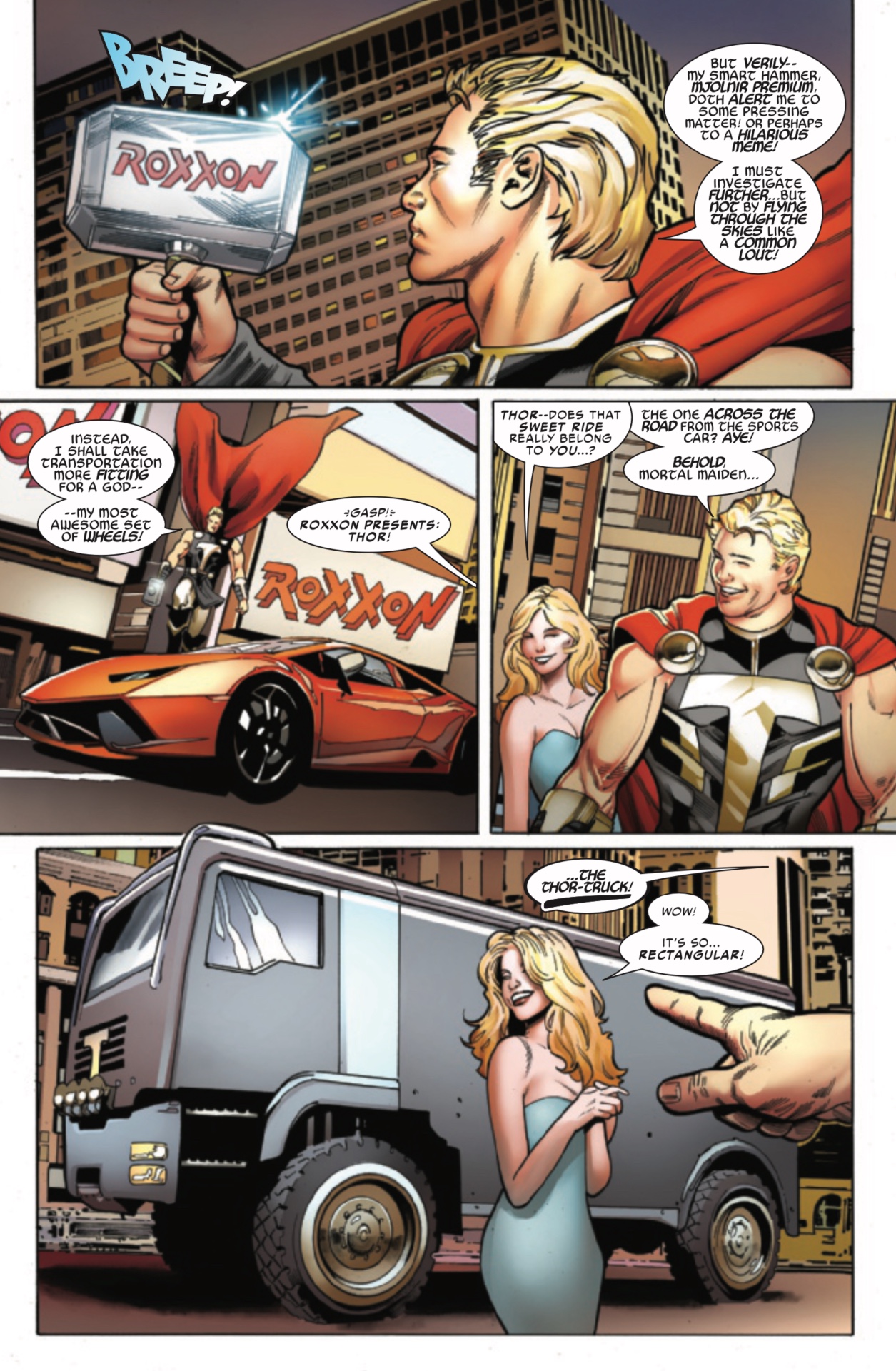
Roxxon itself is sufficiently painted as the absolute worst kind of greedy, profit hungry corporation, bent on making pollution look cool, and painting anyone concerned with pesky topics such as the environment or civil rights as a foolish clod with selfish, deceitful intent.
In the Roxxon Age of Marvel, as this reality is billed, anyone who protests Roxxon or Thor himself is all bound into a spell of liberal idiocy by Loki, who profits from sending out fake wokescolds to make Roxxon's Captain-Planet-villain-level of environmental destruction and fascism look bad to the common man.
It's all part of a scheme by the aforementioned Dario Agger to turn Thor into a pro-Roxxon figure of ridicule in the actual Marvel Universe, by utilizing the same principles of worship and power that have defined the relationship between the Asgardians and humans for millennia.
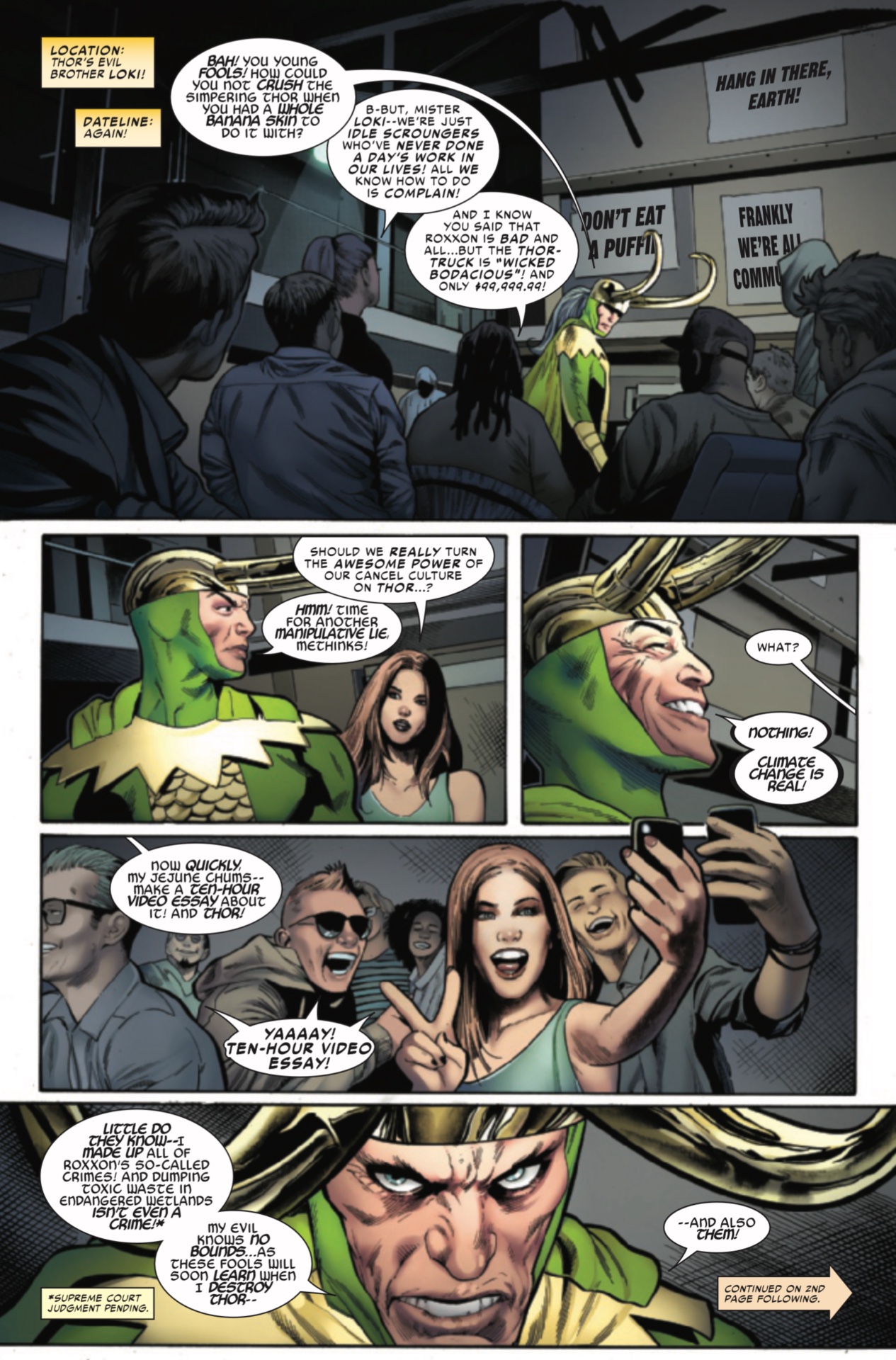
Now, all of that said, the satire on display - showing the worst inclinations of mega-corporation-owned superhero comics - astute as it may be, is also coming from a mega-corporation-owned superhero company in the same week that Marvel and one of its current breakout writers are disagreeing over whether Marvel Studios boss Kevin Feige intervened in the story of the death of Ms. Marvel Kamala Khan.
There's even a particularly extra-meta self-aware page of Agger himself, in full mutated minotaur guise, indirectly addressing the reader by explaining that, in truth, his corporation can publish work that seems to satirize itself because that ultimately gives readers a false sense of security, tricking them into believing that Roxxon could never be as evil as its own comics say, because if it were, it would never publish them.
It's a little roundabout in its way of saying so, but it's an acknowledgment by Ewing et al that the hand which feeds cannot bite itself, and that readers shouldn't give corporations the benefit of trust that their messages can be taken at face value.
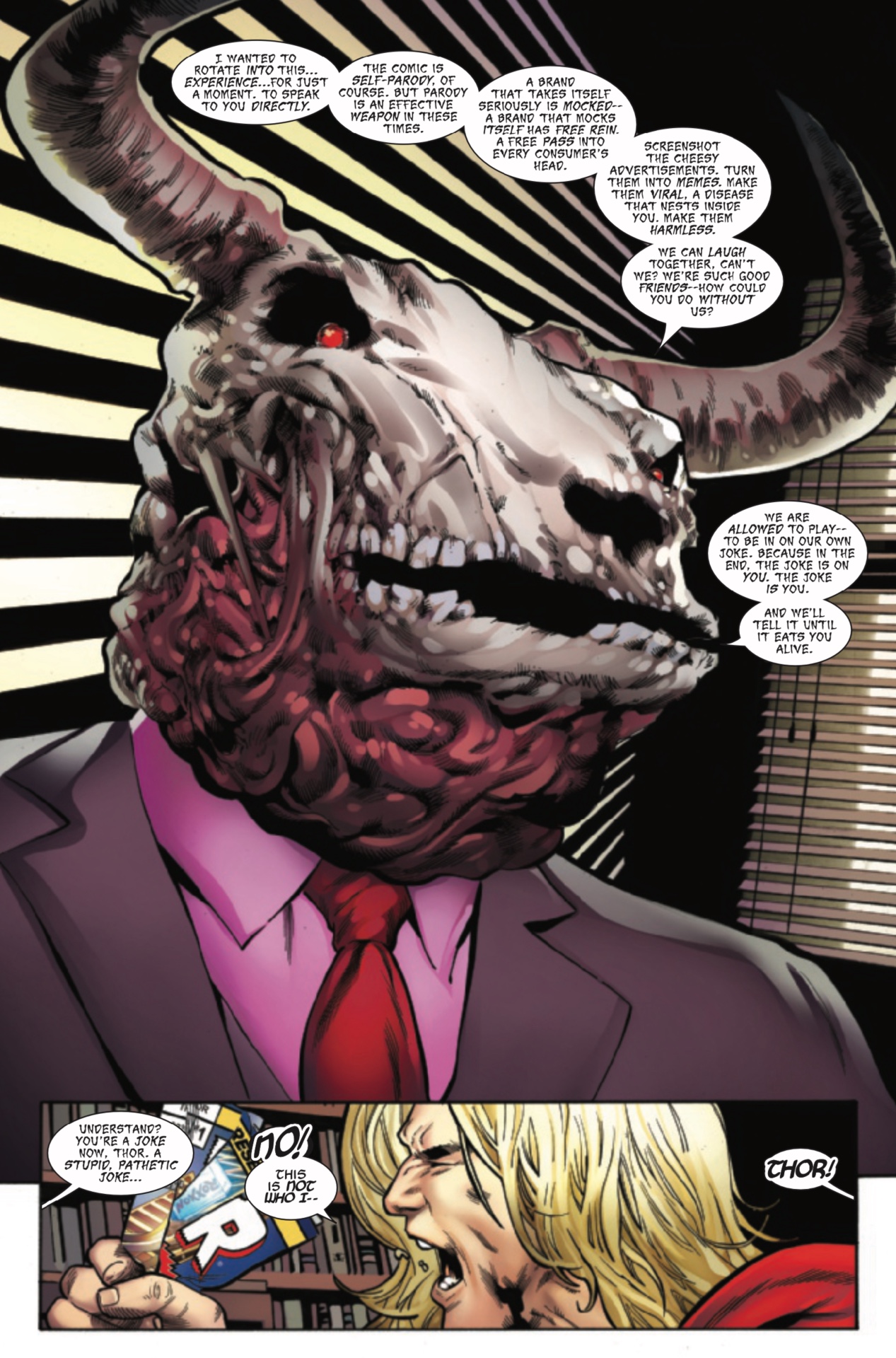
Still, that message also leaves the lingering taste of the serpent's tail in its own mouth, as Ewing and his creative partners themselves can only be as cutting in their satire as their own corporate interests allow. Even I, as I write this, work for a different corporation with its own standards and practices for what I write (for example, I could never say $#%&@ or *%$#^ in a published piece).
In that way, Roxxon Presents: Thor #1 raises some surprisingly philosophical and ponderous questions for a comic that primarily depicts the "Chad Hammer" version of Thor clumsily himbo-ing his way through an in-story plot so vacuous, so preposterously full of "say what you see" style dialogue that even Stan Lee would have balked.
To that end, it may seem like a backhanded compliment to say that Greg Land, whose art has often been criticized as sterile and cookie-cutter, is a good choice for a comic that is meant to come off as soulless, product-driven, corporate nonsense (and I guess it kind of is) but nonetheless, credit where it's due, he captures not just the letter but the spirit of the story in a way that sincerely enhances Al Ewing's script.
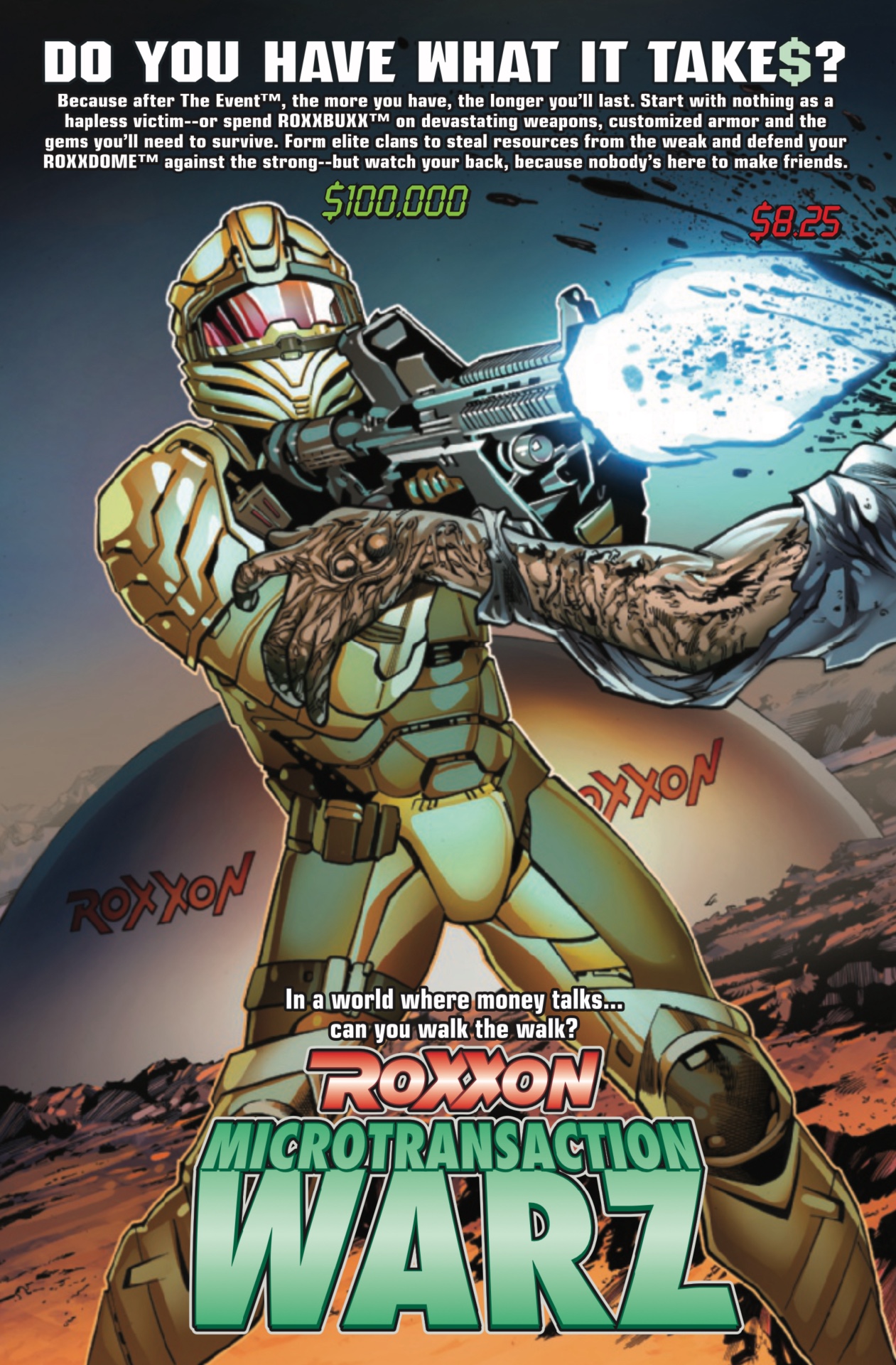
That's all part of the fun though, and part of the lingering question that's contained in Roxxon Presents: Thor #1, which itself sets up a further Roxxon Age story throughout the next few issues of Thor, as displayed by the fake Roxxon Comics ads and editor's notes that hint at other corners of the Roxxon Age.
The story continues in Immortal Thor #10, on sale May 1.
Check out the list of the best Thor stories of all time.







